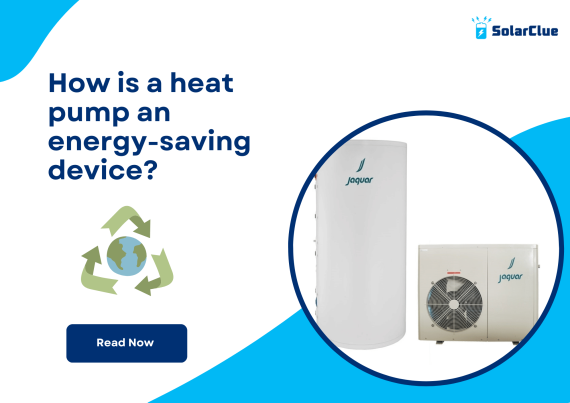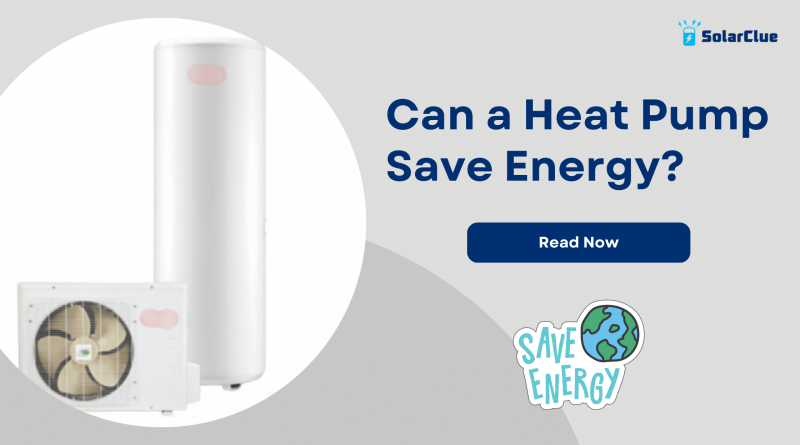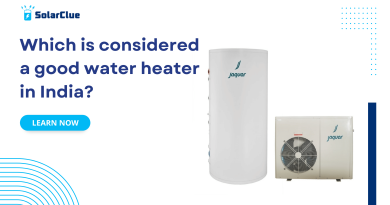Install a Heat Pump to Save Energy
Saving energy is very important for a sustainable future. There are several ways to save energy. One of them is to replace our electric devices with energy-efficient ones. One such appliance would be a heat pump.
In this blog, we will discuss in detail ways to save energy and how a heat pump can help us achieve that. Let’s get started.
Table of Contents
Why is saving energy important?
We need to save energy because:
- Protect the environment: Burning fossil fuels releases greenhouse gases. These gases trap heat, causing climate change. Conserving energy reduces our reliance on fossil fuels. It helps mitigate climate change impacts.
- Save money: Using less energy means lower utility bills. Energy-efficient appliances and practices save you money over time. The upfront cost gets offset by long-term savings.
- Reduce air pollution: Fossil fuel combustion pollutes the air we breathe. It contributes to smog and respiratory issues. Conserving energy minimizes harmful emissions. It improves air quality for healthier living.
- Conserve natural resources: Fossil fuels are finite resources. They will eventually run out if we keep consuming them. Energy conservation helps preserve these resources for future generations.
- Increase energy independence: Excessive reliance on imported fossil fuels poses economic and national security risks. Conserving energy reduces our dependence on foreign energy sources. It promotes energy self-sufficiency and stability.
How to save energy at home?

There are ways to save energy at home. One way is to adopt energy saving devices. Like a heat pump would be a better choice than a geyser. It helps to save energy and cost. Heat pumps use advanced technology, which can meet your household’s daily hot water needs efficiently, while consuming only 25% of electricity consumed by a geyser.
Let’s understand in detail about how heat pumps work, and how they contribute towards saving energy.
What is a heat pump and how it works?
Like a geyser, a heat pump is also a water heating device. The main difference lies in the way they work. Unlike geysers, which use direct electricity to heat water, a heat pump uses electricity to transfer the heat. This process requires significantly less electricity.
It consists of three main components: an exhaust fan, a compressor, and a storage tank.
The exhaust fan draws in air from the surrounding environment, which is then compressed by the compressor. This compression process generates heat, which is transferred to the water stored in the insulated tank. The heat pump works by extracting heat from the air, rather than generating heat directly, making it highly energy-efficient compared to traditional water heaters.
How is a heat pump an energy-saving device?
A heat pump works on the principle of transferring heat from one place to another. Instead of using electricity to heat water, it uses heat from the surrounding air to heat water. It uses electricity to absorb the heat from the outside and transfer it to the tank. This results in energy conservation, and huge savings.
What are the other benefits of heat pumps?
In addition to their energy-saving potential, heat pump water heaters offer several other advantages:
1. Long Lifespan
With proper maintenance and care, heat pump systems can last up to 15 years or more. This is longer than significantly longer than traditional water heaters, which typically need replacement after 8 to 12 years. The durable components and advanced technology used in heat pumps contribute to their extended lifespan, ensuring a long-term investment in energy efficiency and cost savings.
2. Reduce Water Wastage
When the hot water tap is turned on, hot water flows immediately. This is because, hot water is ready in the storage tank, as it works continuously. So, unlike geysers, there is no wastage of water, as you don’t need to wait for hot water to flow.
3. Positive Environmental Impact
By consuming less electricity, heat pumps have a lower carbon footprint compared to geysers. Since they rely on extracting heat from the surrounding air rather than generating heat directly, they reduce the demand for electricity generated, hence reducing burning of fossil fuels. This, in turn, leads to a reduction in greenhouse gas emissions and contributes to a more sustainable future.
4. Efficient in Cold Climates
Unlike popular opinion, a heat pump can work efficiently, even in extreme cold climate. They can extract heat from the surrounding air, even at low temperatures, and use it to heat the water efficiently. This makes heat pumps a viable option for households in regions with cooler climates, without compromising on energy efficiency.
5. Manual Temperature Setting
Conclusion
Investing in a heat pumps is a smart choice for homeowners looking to save energy, reduce their utility bills, and contribute to a more sustainable future. With its energy-efficient design, long lifespan, and multiple benefits, a heat pump system is a worthwhile investment that will pay off in the long run. It is now time for India to take a step forward towards a sustainable future by installing Heat Pumps in your homes, to meet your daily hot water needs.
Visit SolarClue® to see the best heat pump water heaters. SolarClue® is an online marketplace where solar energy products are sold at discounts up to 50%.




